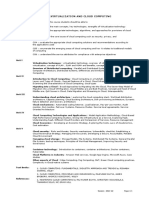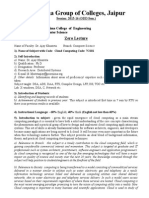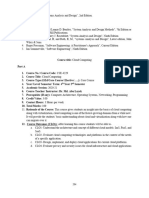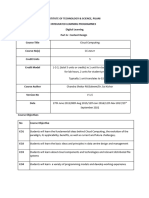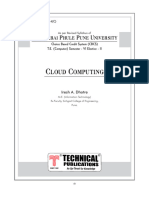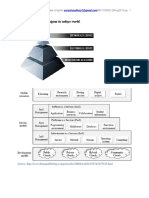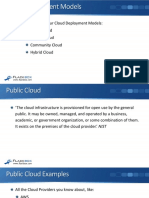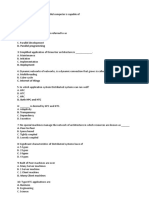0% found this document useful (0 votes)
25 views2 pagesFRM Course Syllabus IPDownload
The CSE70D: Cloud Computing course covers the evolution, characteristics, applications, and challenges of cloud computing, along with security, scheduling, service models, and virtualization. Students will gain insights into infrastructure security, data privacy, and Service Level Agreements (SLAs), while also exploring emerging technologies in cloud security. The course includes practical knowledge of AWS and various cloud service models, equipping students with essential skills for efficient resource utilization.
Uploaded by
adityajai2104Copyright
© © All Rights Reserved
We take content rights seriously. If you suspect this is your content, claim it here.
Available Formats
Download as PDF, TXT or read online on Scribd
0% found this document useful (0 votes)
25 views2 pagesFRM Course Syllabus IPDownload
The CSE70D: Cloud Computing course covers the evolution, characteristics, applications, and challenges of cloud computing, along with security, scheduling, service models, and virtualization. Students will gain insights into infrastructure security, data privacy, and Service Level Agreements (SLAs), while also exploring emerging technologies in cloud security. The course includes practical knowledge of AWS and various cloud service models, equipping students with essential skills for efficient resource utilization.
Uploaded by
adityajai2104Copyright
© © All Rights Reserved
We take content rights seriously. If you suspect this is your content, claim it here.
Available Formats
Download as PDF, TXT or read online on Scribd
/ 2












